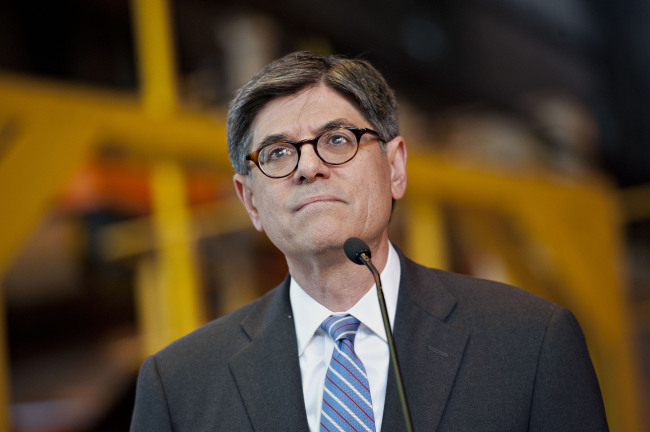U.S. said to complain to China over antimonopoly crackdown
By Korea HeraldPublished : Sept. 16, 2014 - 21:16
U.S. expressions of concern that China is selectively applying antimonopoly laws to discriminate against foreign companies escalated, with the Treasury chief sending a letter on the matter to his counterpart in Beijing.
Treasury Secretary Jacob Lew said in the note to Vice Premier Wang Yang that China is using competition law to force companies to cut prices its consumers pay for products relying on foreign intellectual property, according to a person with knowledge of the correspondence. Lew said such steps might have consequences for bilateral ties, according to the person, who asked not to be identified because the letter isn’t public.
Lew’s complaint follows criticism from the main U.S. and European business lobbies in China that authorities in the world’s second-biggest economy are discriminating against non-Chinese corporations. Dozens of foreign companies are being targeted in probes, with regulators opening an antimonopoly investigation into Microsoft Corp. in July and state media accusing Apple Inc. of using its iPhone to steal state secrets.
Treasury Secretary Jacob Lew said in the note to Vice Premier Wang Yang that China is using competition law to force companies to cut prices its consumers pay for products relying on foreign intellectual property, according to a person with knowledge of the correspondence. Lew said such steps might have consequences for bilateral ties, according to the person, who asked not to be identified because the letter isn’t public.
Lew’s complaint follows criticism from the main U.S. and European business lobbies in China that authorities in the world’s second-biggest economy are discriminating against non-Chinese corporations. Dozens of foreign companies are being targeted in probes, with regulators opening an antimonopoly investigation into Microsoft Corp. in July and state media accusing Apple Inc. of using its iPhone to steal state secrets.

With Chinese economic growth in danger of missing Premier Li Keqiang’s target of about 7.5 percent this year, the regulatory flap poses an additional headwind. The government Tuesday is scheduled to release foreign direct investment data, which previously showed a 0.4 percent drop from last year to $71.1 billion in the first seven months of 2014.
Chinese officials have sought to defend their actions, with a rare joint press briefing last week of the country’s three antitrust regulators highlighting that only about 10 percent of antimonopoly investigations have involved foreign businesses. In remarks to an audience including executives of overseas companies, Li last week pledged to improve conditions for attractive foreign investment. (Bloomberg)
-
Articles by Korea Herald



![[Herald Interview] 'Amid aging population, Korea to invite more young professionals from overseas'](http://res.heraldm.com/phpwas/restmb_idxmake.php?idx=644&simg=/content/image/2024/04/24/20240424050844_0.jpg&u=20240424200058)















